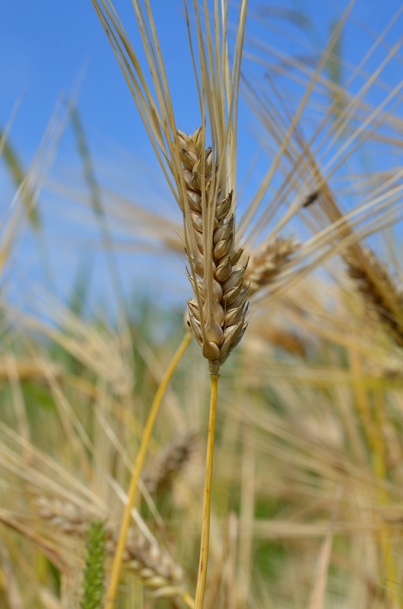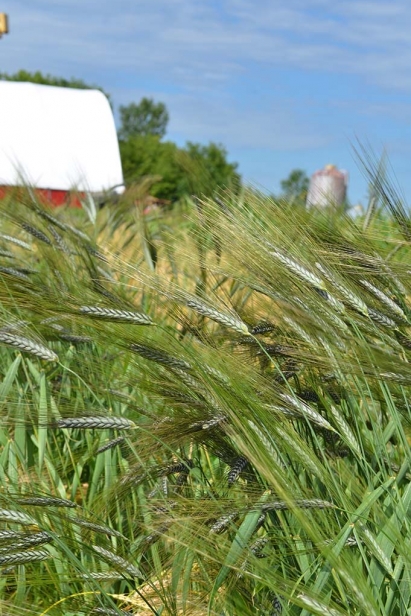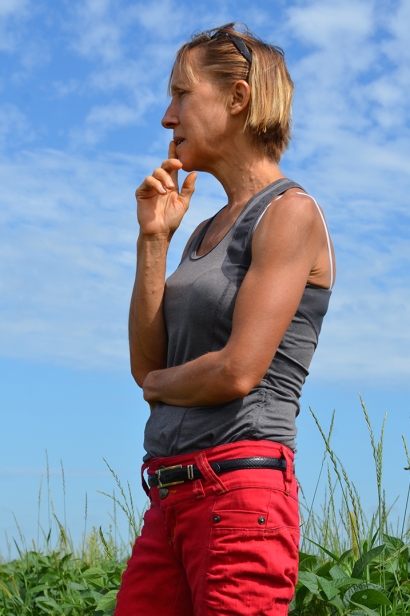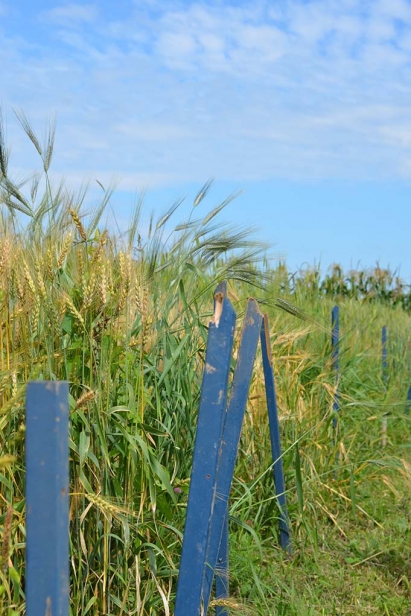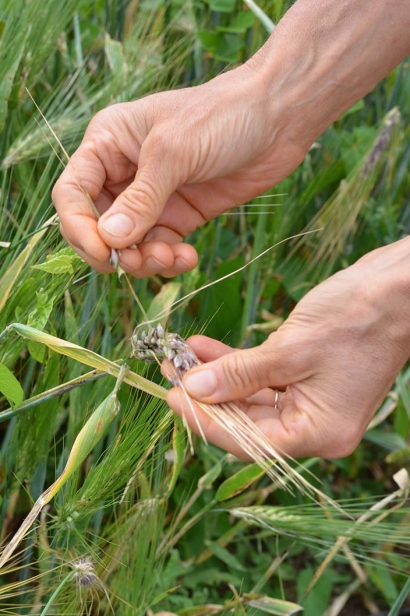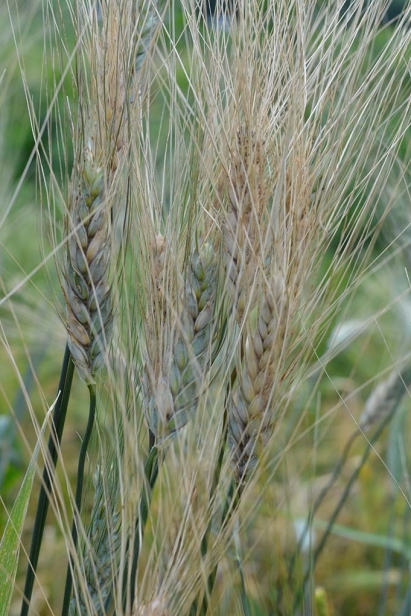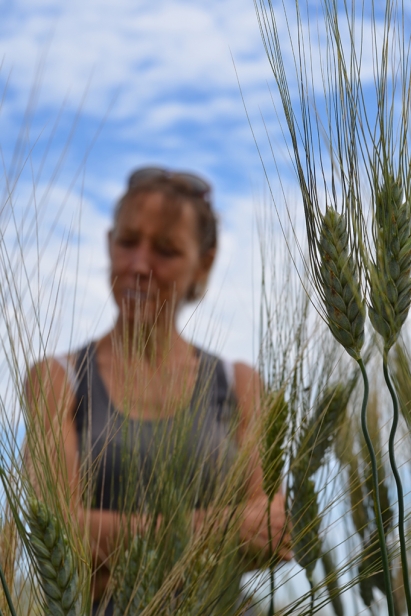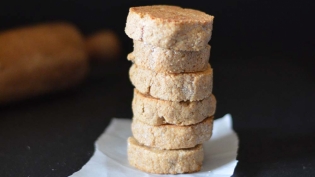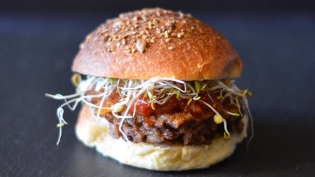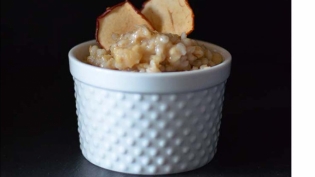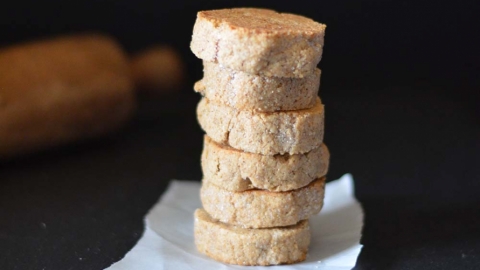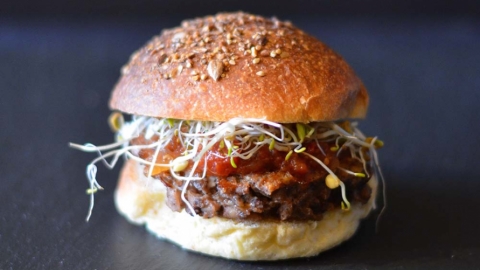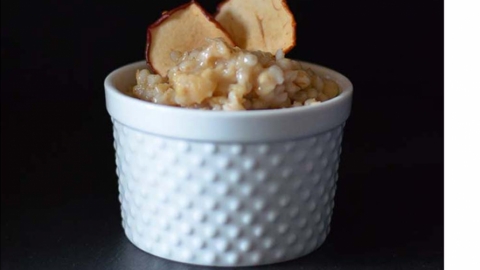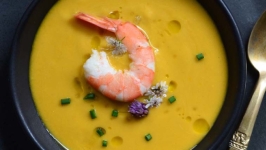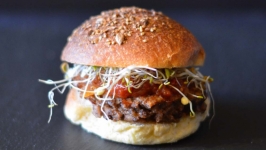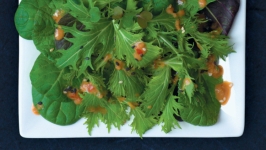Farming Against the Grain
Farmer and food entrepreneur Shelley Spruit has never taken the path of least resistance.
Her 25-year-old daughter, Kristen, recalls, “Summer after summer, Mom would be out digging, hoeing and weeding. I’d say, 'Wouldn’t it be easier if we just bought food from the store?' And she’d answer: ‘Sure. But easy doesn’t make it better.’"
Spruit's insistence on doing what she believes is right, rather than what’s easy, is a driving force behind Against the Grain, a food and farm business whose goal is to cultivate change in the food system. Along with her husband Tony, she grows new and heritage, certified non-GMO grains that are suited to the region’s climate and soil conditions, southeast of Ottawa. Last year, they unveiled a line of nutritious whole-grain, fresh-ground flours, meals and mixes made from two of the grain crops — purple corn and hull-less barley — that are being embraced by area chefs, artisanal bakers and consumers.
“We live in a time of standardization, including standardization of food,” Spruit says. “Instead of eating wholesome food that’s produced close to home, we’re consuming industrial products full of empty calories, made by a handful of big companies, and shipped from thousands of miles away. The results are all around us, from Type 2 diabetes and heart disease to environmental damage. Our mission at Against the Grain is to bring back choice for consumers, one seed and one crop at a time.”
While the Ottawa region produces plenty of soya and canola for export, farms growing whole grains for local consumers are few and far between. That needs to change, Spruit believes. “Why import what can be grown here? When you’re able to get grain products straight from a local farmer, it gives you the opportunity to use fresh, healthy ingredients in your cooking and baking. That’s huge.” Purple corn and hull-less barley have potential for retail and consumer markets because they’re easy to work with and add flavour, texture and rich colour to bread, baking and other dishes, Spruit says. Evidence also shows that they promote good health and well-being.
Purple corn originated in Peru thousands of years ago and to this day remains a key ingredient in tortillas and many other South American and Mexican flatbreads. What people may not know is that it’s a genuine super food. Gluten-free, it’s packed with fibre, protein, antioxidants and essential amino acids (higher even than blueberries). What’s more, studies suggest that the antioxidant in blue corn, called antho-cyanin, can reduce the risk of heart disease and protect against certain cancers.
Against the Grain grows a special strain of the corn that has been adapted to Canada’s colder temperatures. The flour and cornmeal milled from it can be used to replace some or all other flours and regular cornmeal in breads, muffins and other baking.
The hull-less barley the Spruits grow was specially bred in Canada. “We’re the only ones growing hull-less barley in this area,” Spruit says. “We brought the seeds here from Saskatchewan, grew them out ourselves and saved them. People think heritage crops are always best, but some of the new strains are stronger and more resistant.”
With traditional barley and other cereals, the edible seed or grain kernel grows inside a thick hull. In fact, it adheres to the hull in such a way that it has to be mechanically removed, a process that takes away most of the kernel’s nutritious bran and germ. With hull-less barley, the hull falls off easily, leaving the whole grain intact with its full complement of dietary fibre, antioxidants, vitamins and minerals.
Spruit is particularly excited about the fact that the barley is high in beta-glucan, a type of soluble fibre shown to lower LDL or “bad” cholesterol and reduce the risk of heart disease. Beta glucan also slows digestion, helping people feel full for longer and preventing the spikes in blood sugar that can lead to chronic illness.
Hull-less barley flour can be substituted 100 per cent for wheat in cookies, muffins and quick breads, and up to 30 percent for yeast breads. Barley berries (the actual seeds) can be added to soups and salads, substituted for regular and Arborio rice and cooked as a hot cereal.
To ensure the quality of their products, the Spruits keep tight control over everything — from seed selection and planting through to milling and packaging. “We want people to be confident that each grain has been naturally pollinated, harvested from good soil, and cleaned and milled locally,” Spruit says.
Consumers can find the products across the region and beyond, from Herb and Spice (Wellington) in Ottawa to Foodsmiths in Perth, Wendy’s Mobile Market near Kingston and several Toronto locations. They’re also being used in breads and restaurant dishes around town. For example, John Morris, executive chef at the National Arts Centre, created a purple cornmeal gateau for Savour Ottawa’s Harvest Table event in August 2015. Restaurant E18hteen makes tortillas with the blue corn flour and The Red Apron has showcased hull-less barley flour and purple corn meal in its dishes. Nat Harea of Nat’s Bread has mixed purple cornmeal and cooked barley berries into her sourdough bread mixes and made Christmas gingerbread sandwich cookies with the barley flour. In 2016, she plans to add a bread to her permanent line-up featuring ingredients from Against the Grain. “Their products taste great,” she says. “And I’m very impressed with the barley flour. You can actually use it one for one. Some flours are finicky, but this one produces excellent cookies.”
Claude Bonnet, owner of Le Moulin de Provence in the Byward Market, is another enthusiastic customer. Among other things, he’s created a purple corn loaf, an 80 per cent barley baguette, quiche with a crisp purple corn crust and delicious purple corn and hull-less barley health cookies with blueberries. He sees the availability of locally grown ingredients as an opportunity to transform his product line.
While the Spruits want their products to succeed, they’re equally committed to caring for the land and promoting biodiversity and seed sovereignty. They’ve made of a point of restoring neglected and marginal land on their 50-acre farm, planting native trees and creating pollinator habitat to support their grain crops. They also work with the Bauta Family Initiative for Canadian Seed Security, an organization that partners with regional farmers nationwide to build a more secure, diverse seed supply. As part of that initiative, the couple has collaborated with university research stations in testing different breeds of wheat, oats and barley to assess their productivity and suitability to local conditions and to increase supplies of local, sustainably grown seed.
“Crop diversity has declined so much in the past century,” Spruit explains. “Around the world, just three crops — rice, maize and wheat — account for the majority of calories people eat. There’s also less diversity within individual crops and the crops themselves aren’t as nutritious.”
There are problems with the seed supply too, she adds. For millennia, farmers produced and saved their own seeds, based on their knowledge of local growing conditions. Today, most seeds are bred by multinational agriculture companies to provide a uniform crop and withstand the spraying of synthetic fertilizers and pesticides. “Our core belief is that growing food and land ownership need to be back in the hands of small farmers,” Spruit says. “The integrity of the land will give us food with integrity.”
Working against the grain is never easy, but as Spruit explains, "We can make a big impact by taking small steps, whether that means saving seeds, protecting the land, or buying food grown close to home.”
Against the Grain Farms
2147 Jennings Rd., Mountain, Ont.
againstthegrainfarms.ca, 613.406.1969


